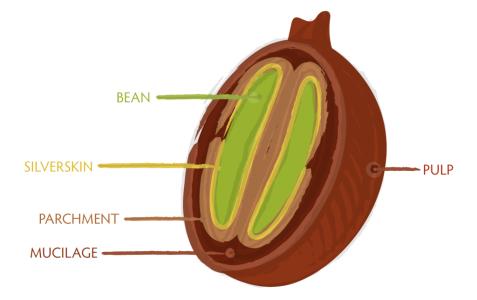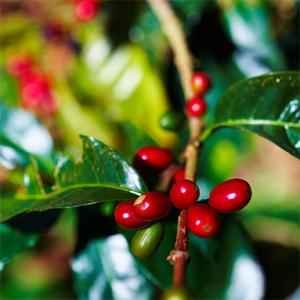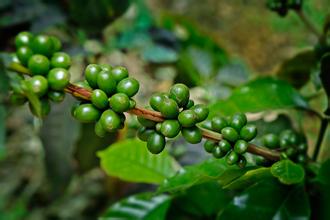Salvadoran Pacamara coffee beans classified according to altitude
Salvadoran coffee is graded according to the altitude of planting, with the highest grade being SHG:
More than SHG:Strictly High Grown-1200 meters
More than HG:High Grown-900 meters
Above CS:Central Standard-600 meters.
Coffee from El Salvador is a specialty of Central America, where it is light, fragrant, pure and slightly sour. Like Guatemala and Costa Rica, coffee in El Salvador is graded according to altitude, and the higher the altitude, the better the coffee. The best brand is Pipil, which is what the Azbec-Mayan (AztecMayan) called coffee, which has been approved by the American Organic Certification Society (Organic Certified Institute of America). Another rare coffee is Pacamara, which is a hybrid of Pacas and Maragogype.
In the early 1990s, guerrilla warfare greatly damaged the country's national economy, reducing coffee production from 3.5 million bags in the early 1970s to 2.5 million bags in 1990-1991. The eastern part of the country was most affected by guerrilla warfare, and many farmers and workers were forced to leave the manor. The shortage of funds has led to a sharp drop in coffee production, from 1200 kg per hectare in the past to less than 900kg per hectare today. In addition, the government imposed an additional 15% tariff on exported coffee in 1986, that is, an additional 15% in addition to the existing 30% tax. Taxes, together with unfavorable exchange rates, have greatly reduced the export of coffee and the quality of coffee.
The government finally realized the great role of coffee in the national economy, such as solving employment, earning foreign exchange and developing agriculture, so it privatized part of the coffee export industry in 1990, hoping to increase the income rate of coffee in the export market.

Important Notice :
前街咖啡 FrontStreet Coffee has moved to new addredd:
FrontStreet Coffee Address: 315,Donghua East Road,GuangZhou
Tel:020 38364473
- Prev

Introduction to the taste of Panamanian Kasha coffee beans with pure flavor
Panama's geographical advantage is that it has many distinctive microclimate areas suitable for coffee cultivation, and Panama also has many persistent and professional coffee growers. This means that there will be a lot of very good coffee in Panama, but these coffees are often associated with high prices. Panama (Panama) exports its first batch of coffee each year in November, almost all of it.
- Next

Description of the taste of Costa Rican San Roman coffee beans with a unique and strong flavor
The main competitors for high-quality coffee in Colombia are Kenya, Guatemala and Ethiopia. Coffee production in Brazil and Vietnam is mainly in quantity, which is not enough to pose a threat to high-quality coffee in Colombia. In the next five years, my country plans to increase the export volume of high-quality coffee to 70% of all exported coffee. Costa Rican coffee has full particles, ideal acidity and unique strong flavor. Coffee from Costa Rica
Related
- Detailed explanation of Jadeite planting Land in Panamanian Jadeite Manor introduction to the grading system of Jadeite competitive bidding, Red bid, Green bid and Rose Summer
- Story of Coffee planting in Brenka region of Costa Rica Stonehenge Manor anaerobic heavy honey treatment of flavor mouth
- What's on the barrel of Blue Mountain Coffee beans?
- Can American coffee also pull flowers? How to use hot American style to pull out a good-looking pattern?
- Can you make a cold extract with coffee beans? What is the right proportion for cold-extracted coffee formula?
- Indonesian PWN Gold Mandrine Coffee Origin Features Flavor How to Chong? Mandolin coffee is American.
- A brief introduction to the flavor characteristics of Brazilian yellow bourbon coffee beans
- What is the effect of different water quality on the flavor of cold-extracted coffee? What kind of water is best for brewing coffee?
- Why do you think of Rose Summer whenever you mention Panamanian coffee?
- Introduction to the characteristics of authentic blue mountain coffee bean producing areas? What is the CIB Coffee Authority in Jamaica?

